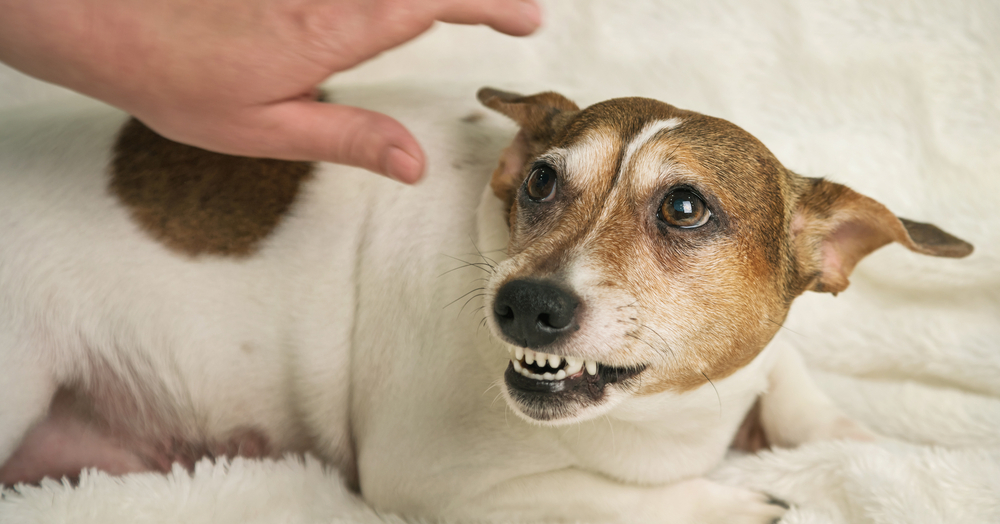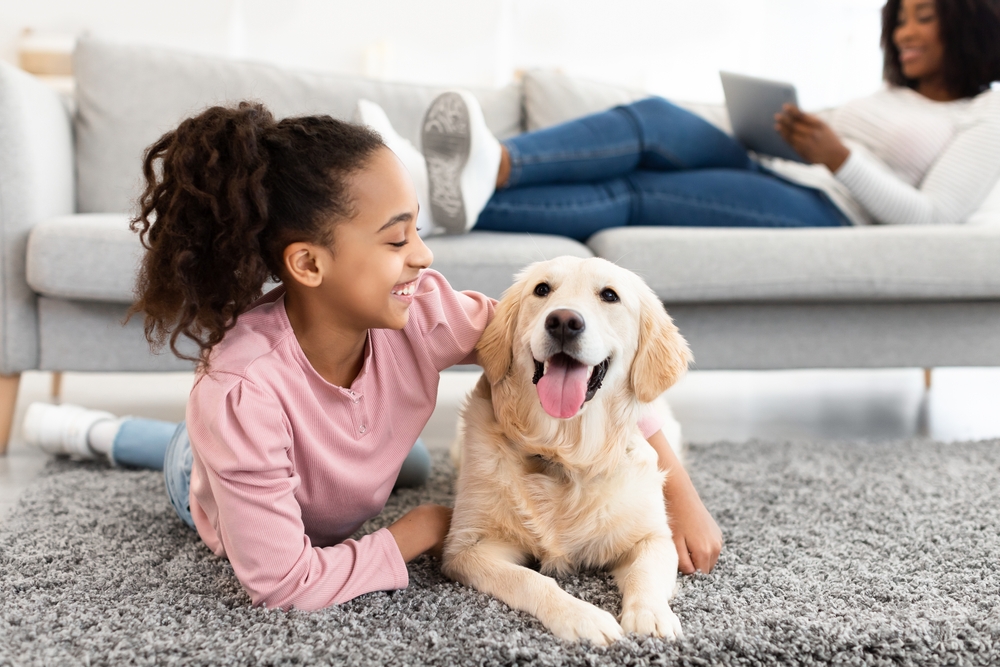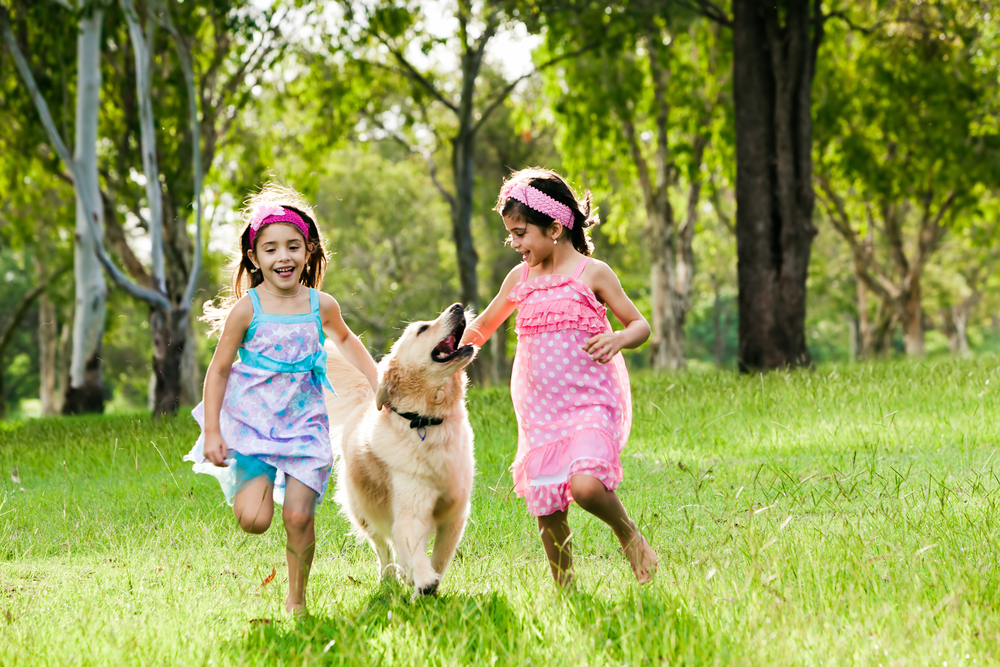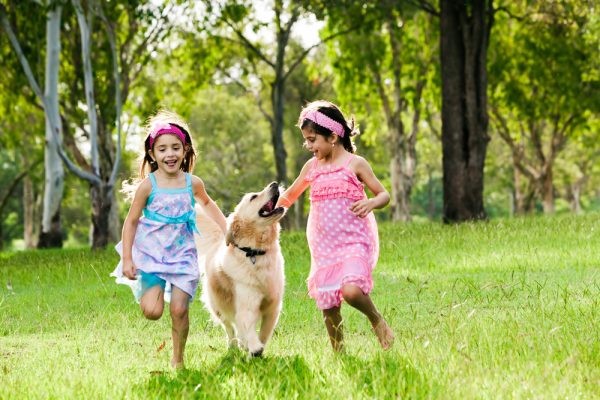Click to Skip Ahead
If you grew up watching Lassie and other canine-centered films or TV shows, you might have a romantic view of the relationship between dogs and kids. However, up to 91% of child dog bites occur in the home with a known dog, which might make you wonder if dogs actually like kids. Although many dogs like kids, helping the two get along often takes more work than owners may realize.
In this article, we’ll offer some tips for determining if your dog likes kids and how to choose a suitable family dog. We’ll also cover how to help your dog get along with kids, including what children need to learn about how to interact with their pets.

How to Tell If Your Dog Likes Kids
If you’re unsure about your dog’s history with kids, it’s best to proceed with caution and prioritize the safety of both children and your pet. When your dog interacts with children, monitor their response and body language.
If your dog acts nervous, fearful, or even aggressive with children, they probably aren’t comfortable with them.
- Avoiding interaction
- Crouching low to the ground
- Tucking their tail
- Flattening their ears
- Lip-licking
- Yawning
- Growling, snarling, or barking at the kids
On the other hand, if your dog displays happy or confident body language around children, it is probably comfortable with them and even likes them. Look for a relaxed posture, with the tail and ears in a neutral position and no vocalization.

Do Some Dogs Like Kids More Than Others?
If you’re looking for a new dog to join your family, you might be curious if some breeds are better with kids than others. While socialization plays a significant role in how dogs tolerate children, some breeds anecdotally are thought to do better with kids overall.
Because of their size, large or giant breed dogs may not be a good match for families with small kids. Toy breeds are also easily injured by young children and should usually only live with older kids.
Dogs with high prey drives may be more likely to chase or react inappropriately to fast-moving, noisy kids who sometimes act like prey. Protective and territorial dog breeds may love the family kids but not unfamiliar children.
Again, no dog or dog breed is inherently bad with children. Some take more time and effort to teach how to get along with kids. Issues can arise when inexperienced owners are matched with these higher-maintenance dogs.
How to Help Your Dog Get Along with Kids
Early and extensive socialization can help your dog get along with kids. Between approximately 6 and 14 weeks old, puppies are the most open to new experiences. You can allow your puppy to have several positive interactions with kids of all ages during this time. Also, get them used to being handled roughly and pulled on like children frequently do.
After 14 weeks, you should control your socialization efforts. However, you’ll also want to prevent your puppy from being scared or traumatized by kids. Early traumatic experiences can have negative long-lasting effects on dogs.
You can try desensitizing techniques for adult dogs who are nervous around kids to help them learn to tolerate and like children. Typically, this means exposing the dog to a child at a safe distance and rewarding them if they don’t show signs of fear. Gradually, the child moves closer as the dog gets used to their presence until they can safely interact. However, this must be done very carefully, and with veterinary input prior to starting, as professionals are best placed to judge if such training is suitable for a nervous dog. You can also try conditioning techniques to help your dog form positive associations with kids. Generally, this means feeding your dog treats whenever kids are around.

What Kids Need to Know About Interacting with Dogs
Teaching dogs how to behave around kids is only part of the solution to getting them to like each other. Children also need to be taught how to properly interact with dogs. For example, kids should learn not to approach a dog they don’t know or touch them without permission.
They shouldn’t play rough with dogs or encourage an already rowdy dog to get more worked up. Children should learn not to take toys, treats, or food from a dog or disturb one who is sleeping or eating. You can teach kids the basics of canine body language so they know how to avoid dogs showing signs of fear or aggression.
Kids should be involved in training and socializing the family dog. Let them learn how to give commands to the dog, and the pup should learn to listen to the kids as they do adult family members.

Conclusion
Although many dogs like kids, it’s essential to supervise all interactions between the two parties. Even the most well-trained dog may react poorly to rough handling. Not every breed or individual dog is the best fit for homes with kids, especially if you’re an inexperienced or first-time owner. Early socialization is the best step you can take to ensure your dog likes or at least tolerates kids when fully grown. Seek professional help whenever questions or concerns arise.
Featured Image Credit: Martin Valigursky, Shutterstock









